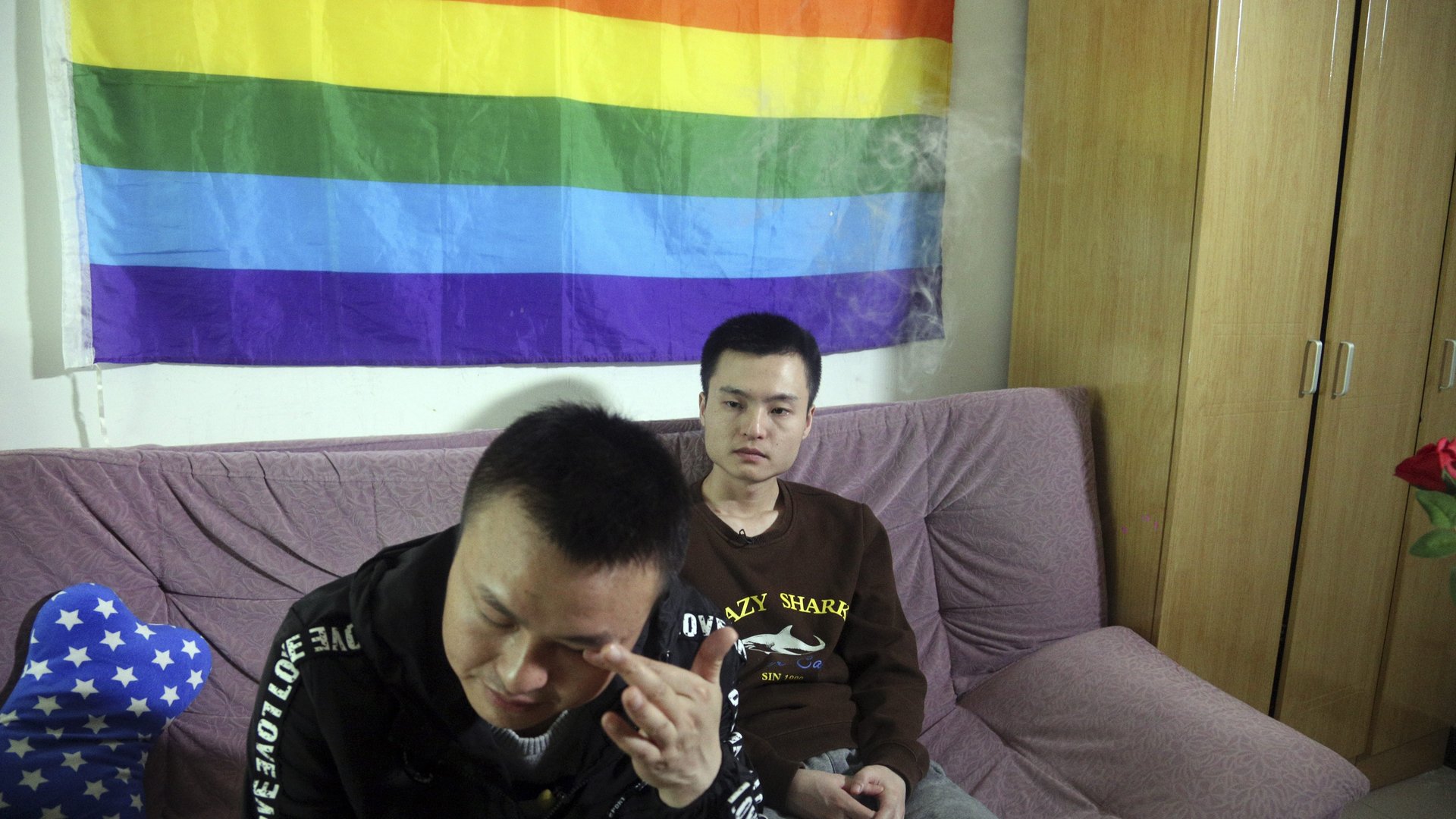Only 5% of China’s LGBT citizens have come out of the closet
The vast majority of China’s lesbian, gay, and other sexual and gender minorities—some 95%—haven’t declared their orientation in public because they fear discrimination and abuse from their families and society, a recent study finds.


The vast majority of China’s lesbian, gay, and other sexual and gender minorities—some 95%—haven’t declared their orientation in public because they fear discrimination and abuse from their families and society, a recent study finds.
The United Nation Development Program survey published Tuesday (May 17) on China’s lesbian, gay, bisexual, transgender, intersex (LGBTI) citizens found only 5% have disclosed their sexual orientation or gender identity outside their families, and only 15% have the courage to tell their families.
By comparison, 59% of the US’s LGBT adults have told one or both of their parents their orientation, a 2013 survey from Pew Research shows.
More than 18,000 Chinese LGBTI people across the country responded to the UN survey, the largest ever on the topic in China. Over half of them reported discriminated or abuse at school, work, and most commonly, within their own families.
Family members of LGBTI people most frequently remind them to watch their appearance, force them to change the way they dress, speak or act, and force them to enter into heterosexual relationships, the study found.
Nearly two thirds of the LGBTI people say they feel under great pressure from their families to get married and have children. Of those that are married, more than 84% are married to heterosexuals who don’t know about their orientation, and 13% are in a “cooperation marriage” in which a gay man and a lesbian woman (or vice-versa) agree to marry to appease their parents. Less than 3% are in same-sex marriages that were performed in foreign countries.
China doesn’t recognize same-sex marriage and lacks policies or laws to protect LGBT rights. Chinese censors have recently cracked down on documentaries, online dramas, and other media that depict or imply same-sex love. Homosexuality has recently been banned entirely on TV as it is deemed “abnormal sexual relations.”
The UN survey also found Chinese sexual and gender minorities have higher unemployment rates, receive lower benefits at work, and are less educated than their non-minority peers.
Gay rights activism is not common in China, but it appears to be on the rise in recent years. In April, a court from central China ruled against a gay couple who sued their local marriage registry office after their application for a license was rejected. It is still rare for Chinese courts to accept such a case in the first place. Last week, a transgender man failed in a lawsuit where he complained he was fired from his job because of discrimination.